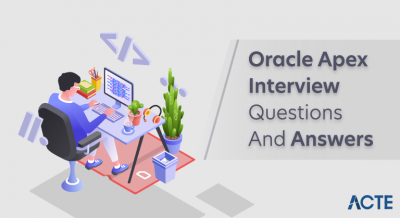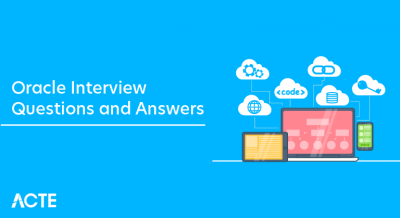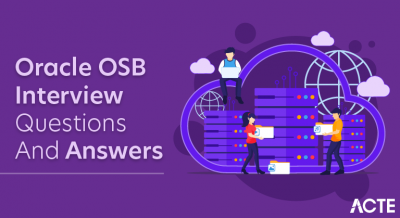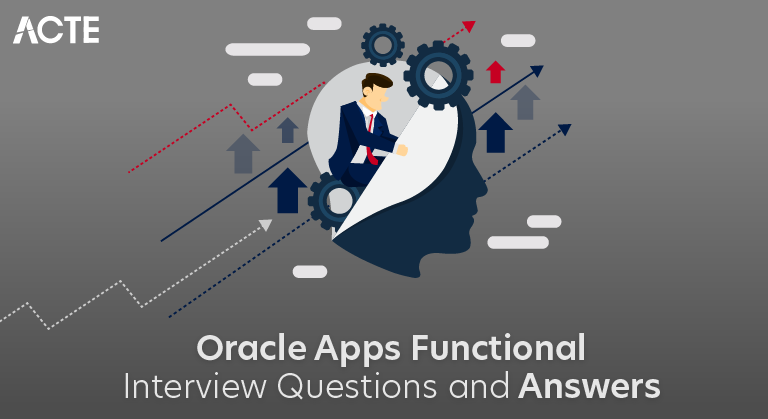
The effective implementation and utilisation of Oracle Applications, which comprise a suite of integrated business applications for diverse functions like finance, human resources, supply chain, and more, is greatly dependent on Oracle Apps Functional professionals. These professionals collaborate closely with stakeholders to comprehend business requirements and set up Oracle Apps modules to suit the needs of the company. People who work in the Oracle Apps Functional domain frequently have a focus on supply chain management, customer relationship management, financials, or HRMS.
1. What is a journal, and are there any different kinds?
Ans:
A journal is a log of all of your financial transactions, including credits and debits. General Journals for routine entries, Special Journals for particular transactions (like sales or purchases), and Subsidiary Journals for in-depth tracking within a particular account are just a few of the different kinds.
2. Which level of translation and revaluation is in use?
Ans:
The organization’s chosen accounting standards determine how much translation and revaluation is used.
Translation and revaluation at the entity level for single entities as well as group level translation and revaluation for consolidated financial statements encompassing several entities are common levels.
3. What do the cross-validation and security rules entail?
Ans:
- Cross-validation in the context of data analysis refers to a technique where a dataset is divided into subsets for training and testing, ensuring the model’s generalizability.
- In contrast, security rules encompass policies and restrictions governing access and permissions within a system, defining who can view, modify, or interact with specific resources to maintain data integrity and confidentiality.
4. What does GL’s Flexfield Qualifiers mean?
Ans:
Flexfield Qualifiers, a feature of the General Ledger (GL) module of Oracle E-Business Suite, are characteristics linked to every segment within a flexible framework. These qualifiers offer more details regarding the behaviour or application of a specific segment within the flexfield.
5. How does dynamic insertion work?
Ans:
Dynamic SQL Construction: Build SQL statements on-the-fly.
Flexible Data Insertion: Insert data without a fixed structure.
Parameterized Adaptability: Use parameters for dynamic SQL.
Automated Insertion: Often automated for efficiency.
Adaptable to Changes: Flexibility for evolving data structures.
6. What is the Adjusting Period?
Ans:
In accounting, the term “adjusting period” refers to a defined window of time at the conclusion of an accounting period during which companies make the required modifications to their financial records in order to guarantee accuracy and adherence to accounting principles.
7. What distinguishes Standard Cash from Standard Accrual?
Ans:
- Transaction Recognition.
- Simplicity.
- Timing.
- Compliance.
8. What are reporting currency, secondary ledger, and primary ledger?
Ans:
Primary Ledger: Usually, transactions are entered in the functional currency—that is, the currency of the nation in which the organisation conducts business—in the primary ledger.
Secondary Ledger: Organisations can keep records in multiple reporting currencies or accounting standards in addition to the primary ledger by using secondary ledgers.
Reporting Currency: The currency used to generate financial reports is referred to as the reporting currency. Organisations frequently have to produce financial statements in currencies other than the functional currency in a multi-currency environment.
9. What variety of Purchase Orders (POs) are there?
Ans:
The procurement process involves multiple types of Purchase Orders (POs), each with distinct functions. Here are a few typical variations:
- Standard Purchase Order
- Blanket Purchase Order
- Contract Purchase Order
- Planned Purchase Order
- Blanket Release Order
- Scheduling Agreement
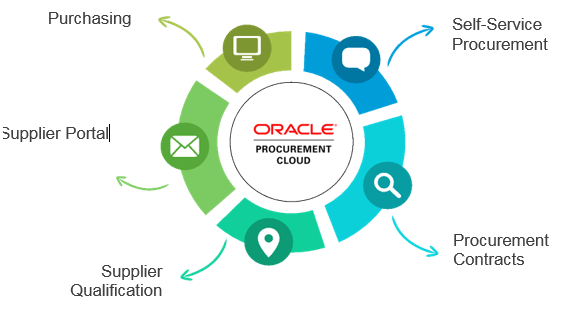
10. What do two-, three-, and four-way matching mean?
Ans:
In order to guarantee the accuracy of invoiced amounts and the corresponding purchase orders, the terms two-, three-, and four-way matching are frequently used in the context of procurement and accounts payable procedures.
11. How do you define payment terms and what do they mean?
Ans:
Payment terms are the conditions set out by the buyer and seller that specify how the buyer will reimburse the vendor for products or services:
- Discounts and Due Dates
- Discount Calculation Basis
- Penalties for Late Payment
- Payment Methods
12. What distinguishes AP invoices from AR invoices?
Ans:
AP Invoices (Accounts Payable): AP invoices are bills received by a business from its suppliers or vendors for goods or services purchased on credit. These invoices are initiated by the suppliers or vendors.
AR Invoices (Accounts Receivable): AR invoices are bills that a company sends to its clients for products or services that were rendered on credit. These invoices are initiated by the business providing the goods or services.
13. What is Prepayment in AP?
Ans:
It is basically a payment in advance that a company makes to a supplier before to the delivery of products or the completion of services.
Until the goods or services are received, prepayments are shown on the balance sheet as a liability. After then, they are recognised as a cost.
14. What is the Key flex field?
Ans:
The Key Flexfield (KFF) in Oracle E-Business Suite is a customizable feature allowing organizations to define flexible data structures. Composed of segments, users can configure these segments based on specific business requirements, enabling the entry and categorization of data.
15. What do AP Debit and Credit Memos mean?
Ans:
AP Debit Memo: A vendor or supplier may send an AP debit memo to a buyer informing them of a debit adjustment to their accounts payable.
AP Credit Memo: In contrast, an AP credit memo is a document that a vendor or supplier issues to a buyer informing them of an account payable credit adjustment.
16. What kinds of AP Invoices are there?
Ans:
Accounts Payable (AP) invoices are available in a variety of formats that correspond to distinct financial activities and transaction kinds.
- Standard Invoice
- Credit Memo
- Debit Memo
- Recurring Invoice
- Expense Report Invoice
17. Explain what AR’s Debit Memo and Credit Memo are.
Ans:
AR Debit : An organisation may send out an AR debit memo to notify a client of a debit adjustment to their accounts receivable.
AR Credit: An account receivable credit memo is a document that a business sends to a client to let them know about a credit adjustment.
18. What does PO’s Approval Hierarchy mean?
Ans:
The organized procedure for getting approval for a purchase order inside an organisation is known as the Purchase Order (PO) Approval Hierarchy.
19. What distinguishes mixed invoices from standard invoices?
Ans:
| Aspect | Mixed Invoices | Standard Invoices | |
| Definition |
Contain items with different accounting or payment terms. |
Include items with uniform accounting and payment terms. | |
| Complexity | More complex due to varied terms for each included item. | Simpler, as all items share the same accounting terms. | |
| Processing | Requires handling and tracking of multiple payment terms. | Streamlined processing with consistent payment terms. | |
| Use Cases |
Useful when items have diverse payment and accounting needs. |
Appropriate when uniform terms apply to all invoice items. |
20. Describe a scenario in which you had to fix a serious Oracle EBS problem.
Ans:
In a manufacturing organization heavily dependent on Oracle EBS, a critical database corruption issue caused system outages and production disruptions. Database restoration, data validation, patch application, performance tuning, and transparent communication with users were key steps in resolving the problem and ensuring business continuity.
21. In Oracle EBS, how are data migrations handled?
Ans:
Data migration in Oracle E-Business Suite (EBS) involves moving data from one environment to another, such as from a legacy system to Oracle EBS or between different instances of Oracle EBS.
The procedure usually entails removing data from the source system, modifying it to satisfy the target system’s specifications, and then loading the data into the target system.
22. What is the process for configuring Multi-Org in Oracle EBS?
Ans:
One essential step in enabling the management of multiple organisations within a single Oracle EBS instance is configuring Multi-Org in Oracle E-Business Suite (EBS).
Within the same Oracle EBS environment, businesses can run various business units, divisions, or legal entities independently thanks to Multi-Org.
23. Describe the significance of Oracle EBS Security.
Ans:
Oracle E-Business Suite (EBS) security is paramount for protecting sensitive data and preventing unauthorized access. It enforces user access controls based on roles, ensuring a least-privilege approach. Through robust audit trails, it facilitates compliance with regulations and standards. Segregation of duties is maintained to prevent conflicts, and encryption safeguards data both in transit and at rest. Regular patching, secure configurations, and user awareness contribute to a resilient security posture.
24. Can you explain the Order to Cash (O2C) process in Oracle EBS?
Ans:
The Oracle E-Business Suite (EBS) Order to Cash (O2C) process encompasses the entire lifecycle of a customer order, from order creation to payment collection.
25. What is Oracle Financials?
Ans:
An organisation’s financial management procedures can be streamlined and automated with the help of the Oracle Financials suite of applications, which is part of the Oracle E-Business Suite (EBS).
26. What is Oracle Business Intelligence and how does it integrate with Oracle EBS?
Ans:
- An extensive collection of business intelligence (BI) tools and applications created by Oracle is called Oracle Business Intelligence Enterprise Edition (OBIEE).
- It is intended to help businesses collect, process, and present business data so that decision-makers can get useful information.
27. What is Oracle HRMS (Human Resource Management System)?
Ans:
An organisation’s management of workforce-related procedures and human resources is supported by the Oracle HRMS, or Human Resource Management System, a full suite of applications included in the Oracle E-Business Suite (EBS).
28. Explain Oracle SCM (Supply Chain Management) module.
Ans:
Businesses can effectively manage their supply chain from procurement to order fulfilment thanks to the extensive range of functionalities covered by the SCM module in Oracle EBS.
29. What is Oracle Business Intelligence and how does it integrate with Oracle EBS?
Ans:
- An extensive collection of business intelligence (BI) tools and applications created by Oracle is called Oracle Business Intelligence Enterprise Edition (OBIEE).
- It is intended to help businesses collect, process, and present business data so that decision-makers can get useful information.
30. How is the Chart of Accounts structured in Oracle EBS?
Ans:
The general ledger (GL) accounts of the company are listed in an organised manner in the Chart of Accounts (CoA) found in Oracle E-Business Suite (EBS). It provides the framework for keeping track of financial transactions and producing financial statements.
31. Explain the difference between Accrual Basis Accounting and Cash Basis Accounting.
Ans:
Accrual Basis Accounting: Revenue is recognized when it is earned, and expenses are recognized when they are incurred, even if the cash exchange hasn’t occurred yet.
Cash Basis Accounting: Under the cash basis, revenues and expenses are recognized only when the actual cash is received or paid.Revenue is recognized when cash is received, and expenses are recognized when cash is paid.
32. What is the purpose of the AutoAccounting feature in Oracle EBS Financials?
Ans:
This feature is especially important when it comes to Oracle General Ledger, Oracle Receivables, Oracle Payables, and other financial modules that require the proper accounting data to be recorded along with financial transactions.
33. How does Oracle EBS support the management of Fixed Assets?
Ans:
The Oracle Assets module is designed to help businesses efficient,track, depreciate, and manage their fixed assets throughout their lifecycle.
34. Describe the Oracle HRMS’s Position Hierarchy concept.
Ans:
The Position Hierarchy is a critical component of Oracle HRMS and is used to define the reporting relationships and organisational structure based on positions rather than individuals.
35. Describe the characteristics and benefits of Oracle Advanced.
Ans:
Characteristics of Oracle: Gives the Oracle Database access to sophisticated analytical features. facilitates machine learning, statistical analysis, predictive analytics, and data mining.
Oracle benefits: Facilitates the extraction of insights, patterns, and trends from data for enterprises.by offering predicted insights, improves decision-making procedures.facilitates streamlined analytics by seamlessly integrating with other Oracle Database functionalities.
36. How is employee training and development supported by Oracle HRMS?
Ans:
The Oracle Human Resources Management System (HRMS) offers features and functionalities that facilitate employee development programmes inside an organisation.
37. Describe Oracle CRM’s Sales Force Automation (SFA) feature.
Ans:
The Sales Force Automation (SFA) function of Oracle CRM helps sales teams handle leads, opportunities, and customer interactions more effectively by streamlining and automating the various parts of the sales process.
38. In Oracle EBS CRM, how are customer service procedures managed?
Ans:
Customer service protocols in the Oracle E-Business package (EBS) are usually handled by the Oracle Service module, which is a component of the larger Oracle Customer Relationship Management (CRM) package.
39. Explain the role that reporting and analytics play in Oracle CRM.
Ans:
- In Oracle CRM, reporting and analytics play a pivotal role in providing actionable insights for informed decision-making.
- The system enables users to generate comprehensive reports on customer interactions, sales performance, and marketing effectiveness.
40. How does Oracle Payroll manage the processing of payroll?
Ans:
Oracle Payroll manages payroll processing through a systematic approach. It captures employee time and attendance data, calculates earnings and deductions based on configured rules, and complies with tax and regulatory requirements. The system automates payroll runs, generates payslips, and facilitates direct deposits. Integrated reporting tools provide insights into payroll expenses, ensuring accurate and timely payroll processing for organizations.
41. How is staff development and training facilitated by Oracle Learning Management?
Ans:
Oracle Learning Management streamlines staff development by offering a centralized platform for creating, delivering, and tracking training programs. It promotes instructor-led and online training, supports several material kinds, and allows the design of personalised learning paths.
42. How does Oracle Performance Management contribute to employee evaluations?
Ans:
Oracle Performance Management plays a vital role in enhancing the employee evaluation process within organisations. Through its comprehensive features and tools, it facilitates a systematic and efficient approach to assessing and managing employee performance.
43. Explain Oracle Advanced Supply Chain Planning.
Ans:
- Oracle Advanced Supply Chain Planning is a comprehensive solution that optimizes and automates supply chain processes.
- It enhances visibility across the entire supply chain, enabling better decision-making through advanced analytics and scenario modeling.
- This tool helps businesses meet customer demand efficiently by aligning inventory levels, production schedules, and distribution strategies.
44. Describe Oracle Demand Planning and its applications.
Ans:
Oracle Demand Planning is a component of Oracle’s broader supply chain management suite, focused on forecasting and managing customer demand. It utilizes advanced algorithms and predictive analytics to generate accurate demand forecasts, helping organizations optimize inventory levels and enhance overall supply chain efficiency.
45. What is Oracle Warehouse Management, and how does it enhance inventory control?
Ans:
- Oracle Warehouse Management is a robust software solution that streamlines and automates warehouse operations.
- It enhances inventory control by providing real-time visibility into stock levels, location tracking, and order fulfillment processes.
46. What is Oracle Talent Management, and how does it support HR processes?
Ans:
Oracle Talent Management is a comprehensive solution that supports HR processes by managing the entire talent lifecycle. It has components for learning and development, succession planning, performance management, and recruiting.
47. Explain the features of Oracle Self-Service Human Resources (SSHR).
Ans:
Oracle Self-Service Human Resources (SSHR) facilitates employee autonomy by offering self-service options for personal data updates and benefits review. Managers can initiate and approve HR transactions, streamlining processes. The system supports secure document management, and robust reporting tools provide insights into HR data for increased transparency and efficiency.
48. Explain Oracle Quality Management and its role in maintaining product quality.
Ans:
- Organisations can create and implement quality plans that specify the requirements and standards for products thanks to Oracle Quality Management.
- Specifications, inspection standards, and quality control procedures might be included in these plans.
49. How does Oracle Transportation Management optimise transportation processes?
Ans:
It is intended to lower transportation costs, increase efficiency, and improve visibility throughout the supply chain. The following are some significant ways that Oracle Transportation Management streamlines transportation workflows.
50. What is Oracle Manufacturing, and how does it support production processes?
Ans:
- Managing and streamlining production processes for manufacturing firms is the primary objective of the Oracle Manufacturing module in the Oracle E-Business Suite.
- With its extensive toolkit, manufacturing operations can be effectively planned, carried out, and monitored.
51. How is data analysis in Oracle EBS supported by Oracle Business Intelligence?
Ans:
Visually represent information from a range of sources, such as Oracle E-Business Suite (EBS). Data analysis capabilities inside the EBS environment are improved by the integration of Oracle BI with Oracle EBS.
52. Describe Oracle Cost Management and its contribution to cost control.
Ans:
Oracle Cost Management is a module within Oracle E-Business Suite that enables organizations to effectively manage and control costs throughout the supply chain. It provides tools for tracking and analyzing costs associated with inventory, manufacturing, and other business processes.
53. Explain Oracle Service-Oriented Architecture (SOA) and its role in integration.
Ans:
Oracle Service-Oriented Architecture (SOA) is a framework that enables seamless integration of disparate software applications and services within an enterprise.
Oracle SOA plays a pivotal role in integration by connecting diverse systems, applications, and data sources, promoting interoperability and information flow across the organization.
54. List the use of the Oracle Application Framework (OAF) in customization.
Ans:
- UI Customization
- Personalization
- Page Customization
- New Page Creation
- Business Logic Customization
55. Describe the role that Oracle Concurrent Manager plays in EBS.
Ans:
Oracle Concurrent Manager in Oracle E-Business Suite is a key component responsible for managing and executing concurrent programs and requests. It controls the concurrent processing of tasks such as reports and data transfers.
56. What are the functions of the Oracle Application Object Library (AOL)?
Ans:
- Security Management
- Concurrent Processing
- Profile Options
- Flexfields
- Value Sets
- Message Dictionary
57. What is Oracle Data Pump, and how is it used in EBS?
Ans:
Oracle Data Pump is a database utility that facilitates the high-speed transfer of data and metadata between Oracle databases. In Oracle E-Business Suite (EBS), Data Pump is commonly used for tasks like migrating data between environments, cloning databases, and refreshing testing instances.
58. Describe Oracle E-Business Suite Security features, including roles.
Ans:
Strong security features are built into Oracle E-Business Suite (EBS) to protect confidential company information and guarantee restricted access.
The establishment of roles and responsibilities is a crucial component of EBS security.
59. Describe how Oracle Advanced Pricing price lists are set up and maintained.
Ans:
In Oracle Advanced Pricing, price lists are set up and maintained through a two-step process. First, users define pricing attributes and conditions, such as customer segments, item categories, and order quantity. These form the basis for creating modifiers that influence pricing. Second, users create specific price lists, associating them with the defined attributes and conditions.
60. In what ways does Oracle Inventory integrate with other modules, such as Oracle WMS?
Ans:
Oracle WMS Integration: Real-time visibility for optimized warehouse operations.
Order Fulfillment: Synchronized processes with Oracle Order Management.
Purchasing Integration: Automated updates based on purchase orders and receipts.
WIP Integration: Accurate tracking of materials and finished goods in manufacturing.
Financial Integration: Seamless reflection of inventory transactions in financial records.
61. What part does Oracle Discoverer play in the E-Business Suite?
Ans:
Oracle Discoverer is a business intelligence tool that provides ad-hoc querying, reporting, and data analysis capabilities for Oracle E-Business Suite (EBS) users. It is designed to empower business users to create their own reports and analyse data without requiring extensive technical skills.
62. In what ways does Oracle Business Intelligence (BI) improve EBS reporting?
Ans:
Visual Insights: Intuitive data visualizations for better understanding.
Real-Time Analytics: Up-to-date and accurate reporting.
Ad Hoc Reports: User-created reports for specific needs.
Centralized Reporting: Unified view across EBS modules.
Predictive Analytics: Forecasting and trend analysis.
63. Describe the objective of data conversion using Oracle Data Loader (FBDi).
Ans:
The primary objective of data conversion using Oracle Data Loader (FBDi) is to streamline and expedite the migration of data from external sources into Oracle Cloud applications. FBDi facilitates the bulk upload of data, ensuring accuracy and efficiency in the conversion process.
64. What are the key features of Oracle Advanced Planning Command Center?
Ans:
- Centralised Planning Control
- Multi-Level Hierarchy
- Comprehensive Visibility
- Collaborative Planning
65. What is Oracle Field Service, and how is it utilised?
Ans:
Oracle Field Service is a comprehensive solution that automates and optimizes field service operations. It manages service appointments, workforce scheduling, and dispatching in real-time.
66. What is the purpose of Oracle Alerts in Oracle EBS?
Ans:
Oracle Alerts in Oracle E-Business Suite (EBS) serve the purpose of providing a flexible and powerful notification mechanism that allows users to proactively monitor and respond to specific events or conditions within the application.
67. What is Oracle Reports, and how is it used in EBS?
Ans:
- Oracle Reports is a robust enterprise reporting tool provided by Oracle that allows organisations to design, generate, and distribute sophisticated reports.
- Custom Report Development,financial reporting,operational reporting,Ad Hoc reporting,batch reporting and compliance reporting are used in EBS.
68. Explain the purpose of Oracle Forms in Oracle EBS.
Ans:
Oracle Forms is a key component in Oracle E-Business Suite (EBS), serving the purpose of providing a powerful and flexible platform for designing and deploying user interfaces for data entry and application interaction.
69. What are Oracle Projects, and what are the main parts of it?
Ans:
Oracle Forms is a key component in Oracle E-Business Suite (EBS), serving the purpose of providing a powerful and flexible platform for designing and deploying user interfaces for data entry and application interaction.The main parts are:
- Project Foundation
- Project Costing
- Project Billing
- Project Analytics
70. Describe the objective of Oracle Project Costing.
Ans:
The primary objective of Oracle Project Costing is to provide organisations with a robust and integrated solution for managing and tracking project-related costs within the Oracle E-Business Suite.
71. In Oracle Receivables, what is Auto Invoice?
Ans:
- Auto Invoice in Oracle Receivables is a feature that automates the process of importing and creating invoices from external sources.
- It simplifies the integration of transactional data, such as sales orders or third-party systems, into the Receivables module.
72. What is the integration between Oracle General Ledger and Oracle Receivables?
Ans:
Oracle Receivables: Oracle Receivables serves as the source for revenue and receivables data, capturing information related to sales transactions, invoices, and receipts.
Oracle General Ledger: Oracle General Ledger, ensuring consistency in financial reporting. Journal Import functionality in Receivables validates and transfers accounting entries to General Ledger, facilitating the creation of a unified and accurate set of financial records.
73. Describe Oracle Order Management and explain how it works with other modules.
Ans:
Oracle Order Management is a comprehensive module within the Oracle E-Business Suite that facilitates the end-to-end order fulfilment process.
Oracle Order Management Works with other modules that are order-to-cash process,real-time information,accurate Invoicing and holistic customer view.
74. What are Service Contracts for Oracle?
Ans:
The Oracle E-Business Suite has a module called “Service Contracts” that is used to manage and oversee service agreements and warranties that businesses offer to their clients.
75. Describe Oracle Order Management’s Order-to-Cash (O2C) procedure.
Ans:
The Order-to-Cash (O2C) process in Oracle Order Management is a comprehensive workflow that spans from the creation of a customer order to the receipt of payment for the delivered goods or services. The O2C procedure in Oracle Order Management typically involves:
- Order Creation
- Pricing and Availability Checking
- Order Confirmation
- Order Fulfilment
- Shipping and Logistics
76. What Oracle Field Service in EBS is all about.
Ans:
An Oracle E-Business Suite (EBS) module called Oracle Field Service (OFS) is intended to optimise and automate field service operations for businesses.
77. What is Oracle Depot Repair?
Ans:
The Oracle E-Business Suite (EBS) includes a module called Oracle Depot Repair that is dedicated to managing and monitoring product and equipment repair procedures.
78. Which applications of Oracle Advanced Supply Chain Planning are present in EBS?
Ans:
- Supply Chain Planning Workbench
- Planned Orders and Purchase Orders
- Distribution Planning
- Manufacturing Scheduling
- Constraint-based Planning
79. What does Oracle order promising mean?
Ans:
An Oracle E-Business Suite feature known as “Oracle Order Promising” enables businesses to give clients precise and trustworthy delivery date guarantees at the time of order entry.
80. How do you perform data conversions in Oracle E-Business Suite?
Ans:
Data conversion in Oracle E-Business Suite (EBS) involves the process of migrating and transforming data from legacy systems or external sources to the Oracle E-Business Suite environment. The data conversion process is critical when implementing Oracle EBS or when integrating with other systems.
81. What is Oracle Payroll, and how does it integrate with other HR modules?
Ans:
- A complete solution for managing every facet of an organisation’s payroll processing, Oracle Payroll is a part of the Oracle E-Business Suite (EBS).
- It makes employee compensation—including salaries, wages, bonuses, and deductions—easier to calculate, distribute, and report.
82. What is Warehouse Management in Oracle?
Ans:
The Oracle E-Business Suite’s suite of tools and features aimed at streamlining and improving the administration of warehouse operations is referred to as “warehouse management” in Oracle.
83. How is Oracle Advanced Benefits used in EBS?
Ans:
Oracle Advanced Benefits is a module within the Oracle E-Business Suite (EBS) that is designed to manage and administer employee benefit programs:
- Benefits Setup and Configuration
- Benefit Plans and Options
- Enrollment Periods
- Benefit Statements
84. Describe the key functionalities of Oracle Transportation Management in EBS.
Ans:
Oracle Transportation Management (OTM) in Oracle E-Business Suite (EBS) is a comprehensive solution that enables organisations to efficiently manage and optimise their transportation and logistics operations.
85. Describe the purpose of Oracle Self-Service Human Resources (SSHR).
Ans:
Oracle Self-Service Human Resources (SSHR), a feature of the Oracle E-Business Suite (EBS) module, enables managers and employees to manage HR-related tasks and access relevant data through an easy-to-use self-service interface.
86. Explain the significance of Oracle Financials in EBS.
Ans:
Oracle Financials in EBS manages financial processes. Key modules include General Ledger, Accounts Payable, Accounts Receivable, and Cash Management, providing a holistic solution for financial management.
87. Explain the role of Oracle Purchasing in EBS and its key features.
Ans:
- Oracle Purchasing is a critical component of EBS that facilitates efficient procurement processes.
- This module encompasses features such as purchase requisitions, purchase orders, and supplier management.
88. What is Oracle E-Business Tax, and why is it essential in EBS?
Ans:
Oracle E-Business Tax is a module within EBS designed to manage tax-related processes comprehensively.
This module is essential for organizations operating in multiple jurisdictions, helping them meet their tax obligations effectively.
89. Explain the significance of Oracle Financials in EBS.
Ans:
- Oracle Financials is a crucial component of EBS, focusing on the effective management of financial processes within an organization.
- Key modules include General Ledger, which manages financial data and reporting; Accounts Payable, responsible for managing payments to suppliers.
90. How does Oracle BI (Business Intelligence) support decision-making in EBS?
Ans:
Oracle BI in EBS offers robust reporting and analytics tools that empower users to make informed decisions. It provides insights into key performance indicators and trends across various business functions, enabling stakeholders to analyze data, identify patterns, and make strategic decisions. This business intelligence capability enhances the overall effectiveness of EBS by facilitating data-driven decision-making.


